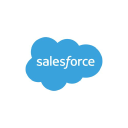How We Built A Timesheet Solution And Grew It To $2M/Year
Hello! Who are you and what business did you start?
My name is Chris Vandersluis. I’m the president of a Montreal-based software company called HMS Software.
I founded HMS back in 1984, and it’s still strong today. HMS is the publisher of TimeControl, a project-based timesheet designed to fulfill multiple purposes at once.
TimeControl tracks activity-based time for use in updating project management plans. It was also designed to deliver timesheet data for Finance for use in Payroll, Human Resources, Job Costing, Invoicing, Defense Contract Audit Agency Compliance, and R&D tax credit reporting.
HMS is a self-funded firm that grows organically and has been around for 38 years.
Our client list reads like a who’s who of large organizations in the private and public sectors.
HMS is a private business, so we don’t share our financials. I can say that we made between $2 million and $3 million last year and were about 30% profitable.














